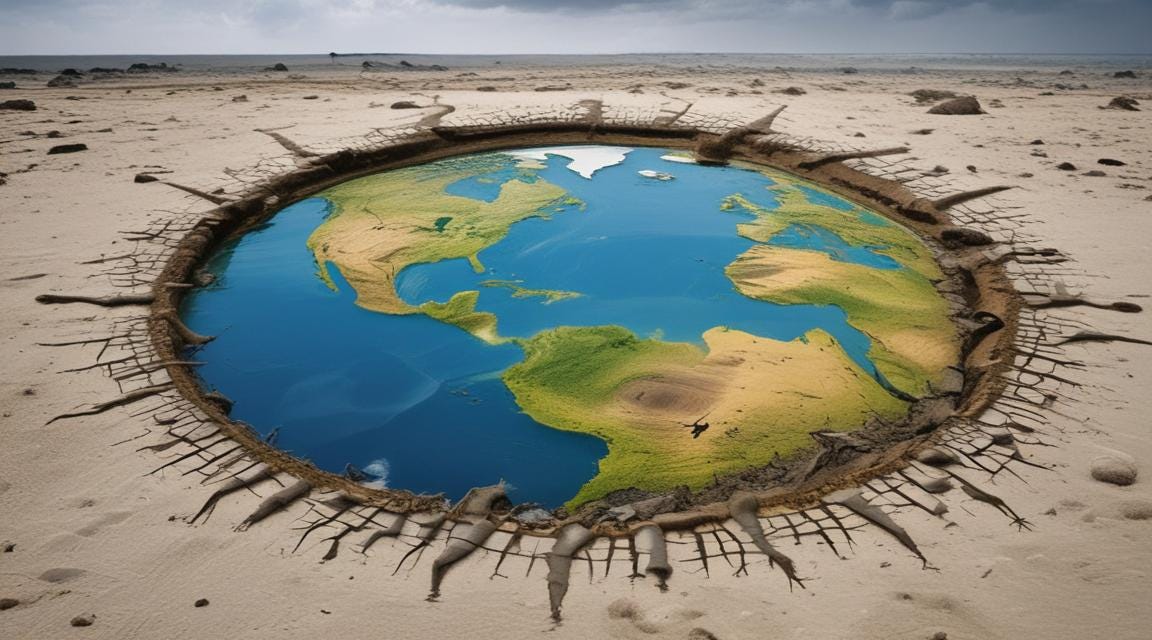
The Pacific Islands, a region often overlooked in global geopolitics, has emerged as a critical front line in the battle against climate change. This reality was underscored during the recent Pacific Islands Forum (PIF) hosted in Tonga, where UN Secretary-General António Guterres issued a stark warning about the existential threat posed by the climate crisis. His visit to the region highlighted the urgent need for international cooperation and diplomatic engagement to address what he termed a "crisis entirely of humanity's making."
The Pacific Islands, despite their small size, have become a focal point in the global climate debate. Their struggle against the existential threat of climate change is a test of the international community's ability to respond to one of the greatest challenges of our time. The diplomatic efforts surrounding the Pacific Islands' plight will have far-reaching implications, not just for the region but for the future of global cooperation in the face of shared challenges.
Microcosm of Global Climate Challenges
The Pacific Islands, comprising small island nations like Tonga, Fiji, and the Marshall Islands, are among the most vulnerable to the impacts of climate change. Rising sea levels, increasingly severe storms, and the degradation of marine ecosystems threaten their very existence. Guterres’ presence at the PIF Summit signals the gravity of the situation, as these nations represent a microcosm of the larger global climate crisis.
The PIF Summit brought together leaders from across the Pacific to discuss collective strategies for climate adaptation and mitigation. However, the challenges these nations face are not just environmental but deeply intertwined with issues of sovereignty, economic security, and geopolitical stability. For instance, the encroaching seas threaten to erode not only land but also the economic and cultural foundations of these societies. This places a unique strain on the diplomatic relations of these nations, as they must navigate complex negotiations with larger powers whose policies and emissions significantly contribute to the crisis.
Global Diplomacy in Addressing Climate Change
Guterres' visit to the Pacific Islands highlights the critical role of diplomacy in addressing climate change. The region's leaders have consistently called for more ambitious climate action from major emitting countries. However, their voices often go unheard in global forums dominated by more powerful nations. The UN Secretary-General's support amplifies their calls, but it also raises questions about the efficacy of existing diplomatic frameworks in achieving meaningful progress.
The international community's response to the Pacific Islands' plight will be a litmus test for global diplomacy in the Anthropocene—a term used to describe the current geological age, viewed as the period during which human activity has been the dominant influence on climate and the environment. The Pacific Islands' struggle encapsulates the broader challenge of achieving climate justice, where those who have contributed least to the problem are suffering the most.
Intersection of Climate Diplomacy and Geopolitical Interests
The Pacific region is not just a climate hotspot but also a zone of increasing geopolitical interest. As major powers like China, the United States, and Australia vie for influence in the region, climate change has become a key issue in the broader geopolitical strategy. For the Pacific Islands, engaging in climate diplomacy is not just about securing aid or technical assistance; it's about asserting their sovereignty and ensuring that their voices are heard in global negotiations.
The growing strategic importance of the Pacific has led to increased attention from global powers, who are keen to strengthen their alliances in the region. This dynamic presents both opportunities and challenges for Pacific Island nations. On one hand, they can leverage their strategic position to secure greater international support for climate action. On the other, they risk becoming pawns in a larger geopolitical game, where their immediate concerns may be sidelined in favor of broader strategic interests.
Urgency of Multilateral Action
Guterres' statements during his visit underscore the urgent need for multilateral action. The climate crisis is a global problem that requires a coordinated global response. However, the current international system, with its reliance on consensus-based decision-making, has often proven inadequate in addressing the scale and urgency of the crisis. The Pacific Islands' situation highlights the limitations of existing multilateral frameworks and the need for innovative approaches that prioritize the needs of the most vulnerable.
The UN Secretary-General's call for bold and transformative action must be heeded if we are to avoid the worst impacts of climate change. This requires not only a significant reduction in greenhouse gas emissions but also substantial financial and technical support for adaptation efforts in vulnerable regions like the Pacific. Moreover, it demands a rethinking of global governance structures to ensure that the voices of small island nations are not just heard but are central to the decision-making process.
As the Pacific Islands stand on the frontlines of climate change, their fate will be a measure of the international community's commitment to addressing the crisis. Guterres' visit and the discussions at the PIF Summit serve as a reminder that climate change is not just an environmental issue but a profoundly diplomatic one, requiring unprecedented levels of international collaboration and solidarity. The future of the Pacific—and indeed the planet—depends on the actions we take today.











